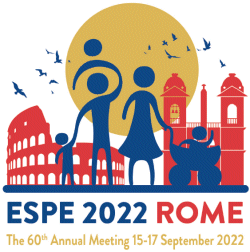
60th Annual ESPE (ESPE 2022)
Rome,
Italy
15 Sept 2022 - 17 Sept 2022
The 60th ESPE Annual Meeting will now be taking place in Rome, Italy.



